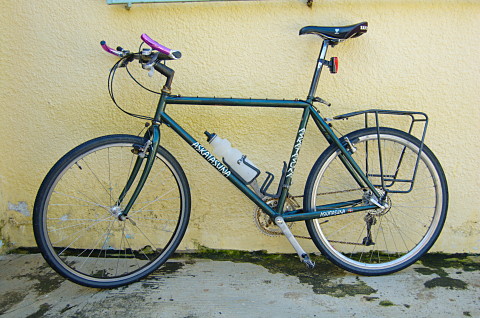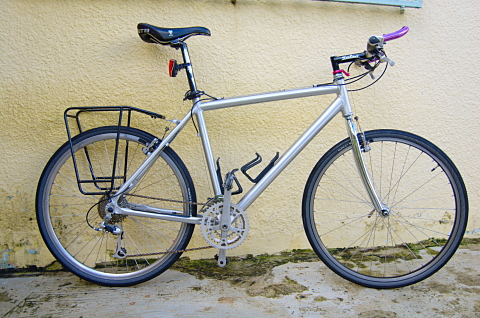This is a scene from the book Atlas Shrugged by Ayn Rand. I have taken the liberty of inserting myself into it in order to argue with Francisco d’Anconia’s stupidity. I’m not sure yet if he’s meant to be an ironic character or what, but whatever. In the scene I am taller, more eloquent, and better looking than in real life. Hah! James Taggart is the brother of the main female protagonist Dagny Taggart, and a jealous moron. Not only does he seem to be stupid, but tries to sabotage his sister at every turn. He’s also a strawman for what Ayn Rand seems to think is the best of the socialist idealist. Francisco d’Anconia is from an Argentinian mining family and is a former lover of Dagny. In this scene he has returned from a disastrous mining venture in Mexico where the entirety of his and the Taggart’s operations have been seized by the state. We currently find James and Francisco mingling at a party thrown by the wife of another industrialist.
James Taggart had approached the group and was waiting to be noticed.
“Hello, Francisco.”
“Good evening, James.”
“What a wonderful coincidence, seeing you here! I’ve been very anxious to speak to you.”
“That’s new. You haven’t always been.”
“Now you’re joking, just like in the old days.” Taggart was moving slowly, as if casually, away from the group, hoping to draw Francisco after him. “You know that there’s not a person in this room who wouldn’t love to talk to you.”
“Really? I’d be inclined to suspect the opposite.” Francisco had followed obediently, but stopped within hearing distance of the others.
“I have tried in every possible way to get in touch with you,” said Taggart, “but . . . but circumstances didn’t permit me to succeed.”
“Are you trying to hide from me the fact that I refused to see you?”
“Well . . . that is … I mean, why did you refuse?”
“I couldn’t imagine what you wanted to speak to me about.”
“The San Sebastián Mines, of course!” Taggart’s voice rose a little.
“Why, what about them?”
One of the group edged closer to James and Francisco, drawn by Taggart’s rising agitation. He was tall and heavy and barrel chested. In contrast to the angular high cheekbones of the lot of them, his face was smooth, rounded, and punctuated by an ample chin. He looked more at home bailing hay than holding a drink.
“Pardon me,” he smiled reaching his hand out. “I couldn’t help but overhear this talk of the mines. Do go on, and pay no attention to me. Pretend I am but a fly on the wall. We can all hear you anyway, but I’d prefer to just be up front about it.”
James shot him a sideways glance and reluctantly returned the handshake. Francisco straightened up to match the height of the interloper, and greeted him. “Pleased to meet your acquaintance. Didn’t catch you name.”
“Oh, my name is unimportant. Fly on the wall an’ all that. I must hear about these mines.”
Taggart turned himself to Francisco giving the interloper his back the best he could. “But . . . Now, look, Francisco, this is serious. It’s a disaster, an unprecedented disaster—and nobody can make any sense out of it. I don’t know what to think. I don’t understand it at all. I have a right to know.”
“A right? Aren’t you being old-fashioned, James? But what is it you want to know?”
“Well, first of all, that nationalization—what are you going to do about it?”
“Nothing.”
“Nothing?!”
The interloper smiled and sipped his drink, his eyes twinkling.
“But surely you don’t want me to do anything about it. My mines and your railroad were seized by the will of the people. You wouldn’t want me to oppose the will of the people, would you?”
“Francisco, this is not a laughing matter!”
“I never thought it was.”
“I’m entitled to an explanation! You owe your stockholders an account of the whole disgraceful affair! Why did you pick a worthless mine? Why did you waste all those millions? What sort of rotten swindle was it?”
Francisco stood looking at him in polite astonishment. “Why, James,” he said, “I thought you would approve of it.”
“Approve?!”
The interloper spat his drink, unable to contain his laughter. “Sorry about that,” he said wiping liquid from his lips. “I didn’t get any on you, Mr. Taggart, did I?”
“No.”
“Sorry, I know I said I was going to be a fly on the wall, but I really must know, Francisco. Who would approve of a worthless mine? Comeon, my man, you mustn’t play so, toying with James like that. He’s asked a valid question, and he deserves an earnest response.”
Francisco smirked. So it was to be two on one, eh? He was the great Francisco d‘Anconia. This should get good.
“I thought you would consider the San Sebastián Mines as the practical realization of an ideal of the highest moral order. Remembering that you and I have disagreed so often in the past, I thought you would be gratified to see me acting in accordance with your principles.”
“What are you talking about?”
Francisco shook his head regretfully. “I don’t know why you should call my behavior rotten. I thought you would recognize it as an honest effort to practice what the whole world is preaching. Doesn’t everyone believe that it is evil to be selfish? I was totally selfless in regard to the San Sebastian project. Isn’t it evil to pursue a personal interest? I had no personal interest in it whatever. Isn’t it evil to work for profit? I did not work for profit—I took a loss. Doesn’t everyone agree that the purpose and justification of an industrial enterprise are not production, but the livelihood of its employees? The San Sebastián Mines were the most eminently successful venture in industrial history: they produced no copper, but they provided a livelihood for thousands of men who could not have achieved, in a lifetime, the equivalent of what they got for one day’s work, which they could not do.
Isn’t it generally agreed that an owner is a parasite and an exploiter, that it is the employees who do all the work and make the product possible? I did not exploit anyone. I did not burden the San Sebastián Mines with my useless presence; I left them in the hands of the men who count. I did not pass judgment on the value of that property. I turned it over to a mining specialist. He was not a very good specialist, but he needed the job very badly. Isn’t it generally conceded that when you hire a man for a job, it is his need that counts, not his ability? Doesn’t everyone believe that in order to get the goods, all you have to do is need them? I have carried out every moral precept of our age. I expected gratitude and a citation of honor. I do not understand why I am being damned.”
The interloper’s belly laugh filled the room. So loud, it was, that all turned to him. “Oh, I’m so sorry,” he said wiping a tear from his eye, “I sometimes forget myself. Francisco, you can’t possibly believe all that vomit that just came out of your mouth? Tell me, man, is your hyperbole meant to be ironic? If it is, bravo for painting the most deliciously ridiculous portrait of a Socialist that I have ever seen. If not, then -” and he chuckled loudly, “then may God have mercy on your soul.”
Francisco, turned toward the man, nudging Taggart from orbit. “Pray tell, sir, what do you mean? I was being honest. Sincere.”
“Oh. Well then. Then you have taken careful pains to depict your adversary’s argument in the worst possible light, haven’t you, Señor d‘Anconia? Perhaps Taggart is a charity case to your wit. I mean, we all know it’s his sister that’s the smart one in the family, but you can’t possibly ascribe to him and his ilk such a dreadfully idiotic and logically fallacious position. No offense, Mr. Taggart,” he said touching his shoulder.
If James Taggart had any inclination that the stranger would have been a sympathetic associate in the face of Francisco, that pretense had been destroyed.
In the silence of those who had listened, the sole comment was the shrill, sudden giggle of Betty Pope: she had understood nothing, but she saw the look of helpless fury on James Taggart’s face.
People were looking at Taggart, expecting an answer. They were indifferent to the issue, they were merely amused by the spectacle of someone’s embarrassment. Taggart achieved a patronizing smile and walked away.
“Hah!” bellowed the stranger. “I’ll give you your answer, Francisco. It’s down to you. And it is down to me. Let me first help you understand why your mines failed, my man. They failed because you didn’t give a lick of care to them or the workers, for the geological survey, for the operations, and for the investment. How could you even make such a statement as to having given to them all livelihoods? You and I both know that is ridiculous. It’s the kind of point that a college freshman makes after his first semester of microeconomics. Take for example the case of a state-mandated minimum wage – ”
“Yes, let’s.” said Francisco.
“Yes, minimum wage. So one would say in a free society that labor should seek its own value and that business should be free to pay for it what the market will bear. In our society we have established a minimum that one should be able to accept and what one should be able to pay. The buffoon, the ignorant, the ill-educated might ask, where does it all end? If such and such quantity is good, why not make the minimum a thousand dollars an hour or a million? Where will it end? You would say that it would end with the rumination of society, where everybody is converted into a moocher or a looter. You have educated us, Señor d‘Anconia, and thank you for it. Thank you for revealing our silly suppositions and saving us from ourselves.
“Let me give you a better scenario. Let me give some respect to the argument and introduce a key concept that seems to have gone missing in the mix.”
“And what would that be?”
“Sustainability, my friend. Sustainability. Your little educative adventure in San Sebastián was an exercise in useless motion, lots of sound and fury but signifying nothing. Keep the same altruism. Keep the same tenants of providing good jobs. Keep the same principles of happy well paid workers, but put a dash of sustainability into the batter. You’ve got to find some copper, don’t you? Without producing anything in the mine, you may as well have put your money in a pile and lit it on fire. You benefited no one, save your immense ego.
“You cannot simply take the idea that an individual should be free to do exactly what he wants in the way he wants to do it and extend it to all things in all ways. If a drink of water is good for you, an ocean dumped upon your head must be better. Moderation, my man, moderation. You can’t simply take a little of something and double it, thinking that it will be all the better. Is the needle moving too far into government control? Perhaps. But that’s a discussion that good people can have. If government meddles too much perhaps it distorts markets, creating unintended outcomes. If the government meddles too little, the greedy will exploit – well everything and they too will distort the market. You know this is true, because history has shown it, or was the French Revolution a response to nothing? Were the kings and royals the only true makers? They had palaces and riches while the third estate had their famine and filth. Did they deserve it? Is the vast majority of humanity simply defective in some way, Señor d‘Anconia? Do they deserve the lot they were born into?
“Let me ask you a question. How much of what you have did you start with? You might have doubled it, because you’re a hard worker, impassioned, smart, driven – but there’s this trouble of being born on third base and believing you’ve hit a triple. You grew up with the best schools, global travel, opportunities for leisure, learning, all of it with the safety net of your family’s fortune and reputation.
“Are not those who toil in your mines and ventures worthy of human dignity, to not simply be some sort of social experiment for you to toy with? Should they have had the schools that you had? Should they have had the same opportunities that you’ve had? Are you inherently superior? Do you cry for their children whom you have crushed with your useless operation?
“Did you deserve those things you were born into, Francisco? Even if you were to tear it all asunder, as you seem to be doing, I am convinced that you could rebuild even from zero, because no one can take away your inheritance of self – your mind as it was expanded, nurtured, tested, and filled.” The stranger paused. Francisco had gone quiet, chewing his lip and looking restless.
“I have taken too much of your time, I’m afraid. Don’t worry, Francisco, I’ll leave you with one final thought. If you had been born to nothing, having only inherited the poverty of your father, and your father’s father, do you think you would be where you are today? You may be, but would it be likely? Today, with your immense wealth you would attempt to throw off the shackles of oppression by the looters and the moochers, but is not poverty itself the greatest ball and chain?” The stranger took a breath, downed his drink and placed the empty glass upon a passing tray. “Be better, Francisco. You must be better. I am reminded of an African proverb – if you want to go fast, go alone; but if you want to go far, go with others. Do you want to go far, Francisco?”






